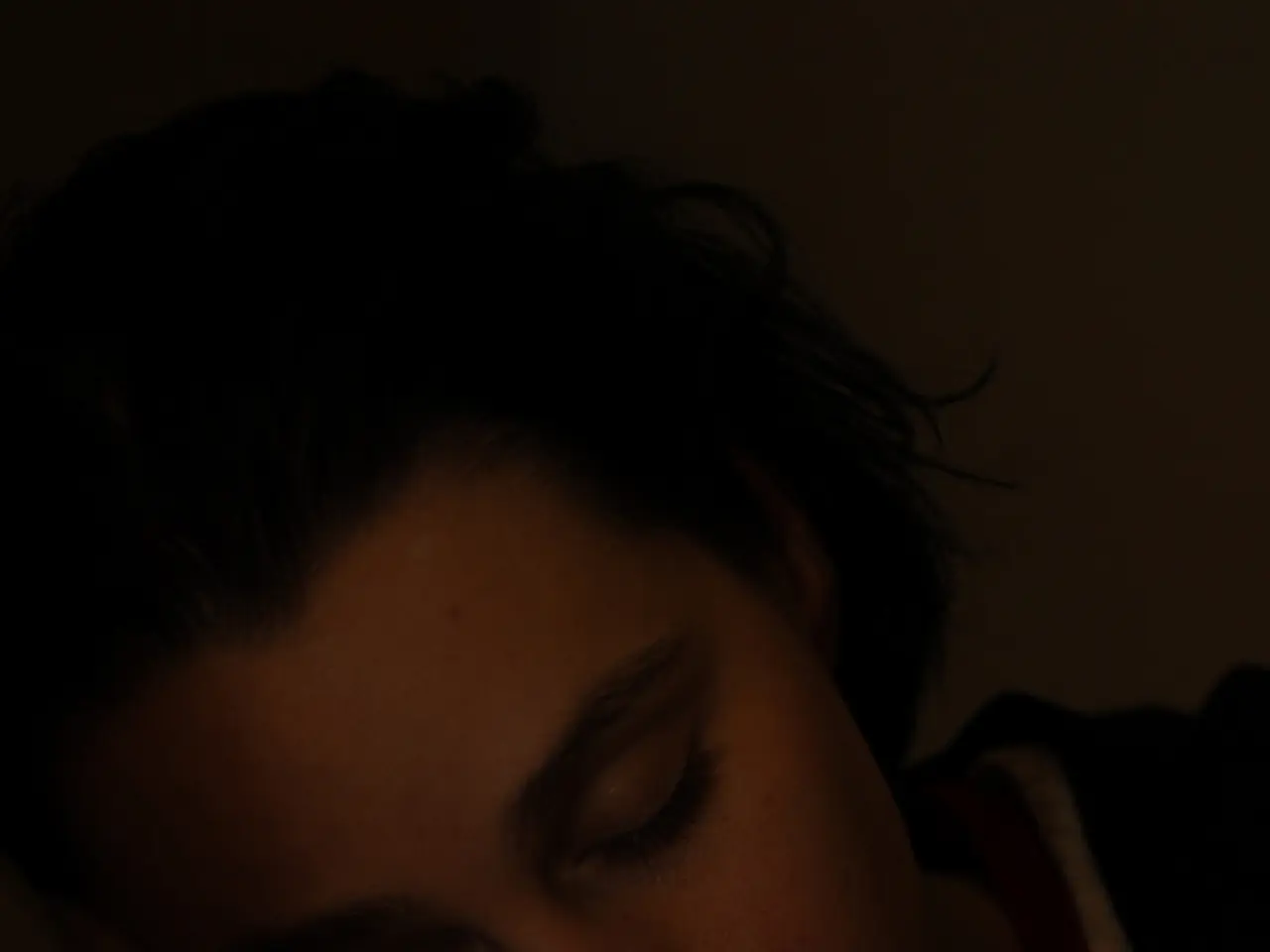Midday rests could be indicative of health issues needing attention
Snoozing Your Health Away? The Unseen Dangers of Daytime Napping
Sleeping like a baby at night and catnapping during the day might seem like the perfect combination for restful recovery. However, a recent study reveals an intriguing link between daytime napping and increased risk of all-cause mortality among middle-aged and older adults.
While the Centers for Disease Control and Prevention recommends adults get 7 to 9 hours of shut-eye at night to maintain physical and mental well-being, irregular snoozing during daylight hours may spell trouble.
Your Quiet Time Could Be a Red Flag
A study conducted on 86,565 participants, ages 63 on average, discovered that napping for longer durations, especially around midday, is associated with a higher risk of death from any cause. Surprisingly, nap variability and the timing of rest periods also play a role, indicating that irregular sleep patterns could suggest hidden health issues.
Just because slumber during the day seems innocent, it's crucial to pay attention to napping behaviors. As Emer MacSweeney, MD, a neuroradiologist who wasn't part of the study, explained to Medical News Today, "These findings suggest that daytime napping patterns could serve as early markers of declining health or disrupted sleep architecture in older adults."
Napping Habits Decoded
Collaborating with the UK Biobank, researchers analyzed daily napping routines, observing factors like frequency, duration, and timing. Those who died during the 8-year study averaged 4.19 years of survival from the start, more frequently napping between 11 a.m. and 3 p.m. and taking longer naps with greater daily variations.
Could Irregular Naps Be Deadly?
The study did not definitively establish a causative link but offered intriguing insights into the connection between daytime napping and health. For instance, some research suggests that short naps may help lower blood pressure, but extended daytime snoozing is linked to higher Body Mass Index (BMI), blood glucose levels, and systolic blood pressure.
Combining the findings of numerous observational studies, a pattern emerges linking excessive napping with a greater risk of dementia and all-cause mortality. It's essential to take these results with a grain of salt, as further research is necessary to establish causation.
Sleep Better Tonight, Live Longer Tomorrow
If you find yourself needing a power nap, there's still hope. Establishing better sleep hygiene can improve your quality of sleep at night. Incorporate the following habits into your evening ritual to snooze peacefully:
- Maintain a consistent sleep schedule, even on weekends.
- Limit caffeine and alcohol, especially in the hours leading up to bedtime.
- Develop a calming bedtime routine, such as reading a book or meditating.
- Increase daytime exposure to natural light to improve your circadian rhythm.
- Address underlying health conditions and sleep disorders.
- Engage in regular exercise, but avoid vigorous activity before sleep.
- If excessive sleepiness persists, consult a healthcare professional for a clinical sleep assessment.
By following these guidelines, you'll be well on your way to better sleep, greater health, and fewer daytime naps—the perfect recipe for long, happy living.
- The unseen dangers of daytime napping are becoming more evident, particularly among seniors, as a recent study suggests an increased risk of all-cause mortality in middle-aged and older adults due to irregular napping habits.
- The Centers for Disease Control and Prevention advocate for seven to nine hours of sleep for adults to maintain physical and mental well-being at night, but daytime snoozing patterns might indicate hidden health issues, such as chronic diseases or chronic kidney disease.
- Studies on the aging and longevity of seniors have revealed that excessive napping, especially around midday, is linked to a higher risk of death from any cause. Additionally, nap variability and irregular sleep patterns could signal deteriorating health and disrupted sleep architecture.
- General health and wellness, including mental health, can be affected by daytime napping habits. CBD, a potential treatment for certain sleep disorders, should also be considered in the context of healthy sleep patterns and a balanced lifestyle.
- Science highlights the importance of maintaining regular sleep schedules, managing caffeine and alcohol intake, developing calming bedtime routines, increasing daytime exposure to natural light, addressing underlying health conditions, engaging in regular exercise, and consulting medical professionals when experiencing excessive sleepiness for improved sleep quality, overall health, and to reduce the dependence on daytime napping.
- By implementing appropriate health practices and addressing any underlying medical-conditions, seniors can improve their sleep, contributing to a healthier, longer life, less reliance on daytime napping, and ultimately, a more fulfilling existence.








